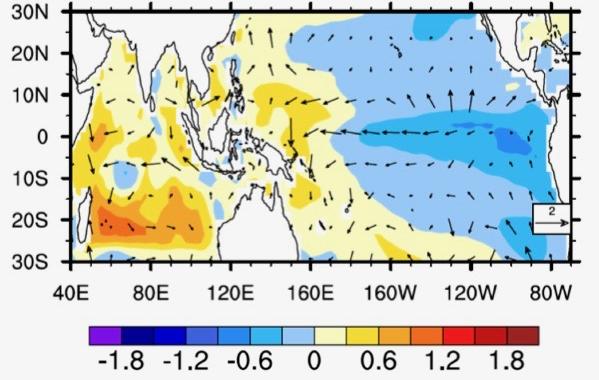Lu Dong and Michael McPhaden published a paper in Scientific Reports on 2 February 2018 that describe how in 2014, warm sea surface temperatures (SSTs) in the Indian Ocean weakened westerly wind anomalies in the Pacific and helped to arrest the development of a widely anticipated major El Niño. They demonstrated the processes involved using an ensemble of coupled numerical experiments in which observed Indian Ocean SST anomalies in 2014–15 were prescribed but the Pacific Ocean-atmosphere system was free to evolve. Results confirmed that warm SST anomalies in the Indian Ocean created conditions that would have favored strengthening trade winds in the Pacific in 2014 such that only borderline El Niño conditions were evident by the end of the year.
Dong, L. and M.J. McPhaden, 2018: Unusually warm Indian Ocean sea surface temperatures help to arrest development of El Niño in 2014. Science Reports, 8, 2249, doi:10.1038/s41598-018-20294-4.



